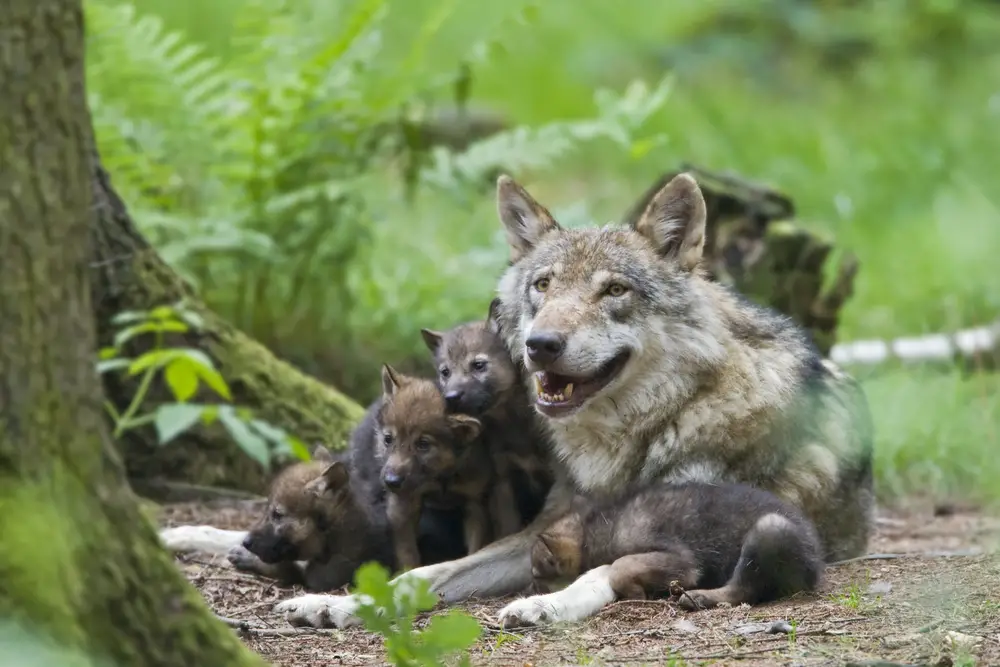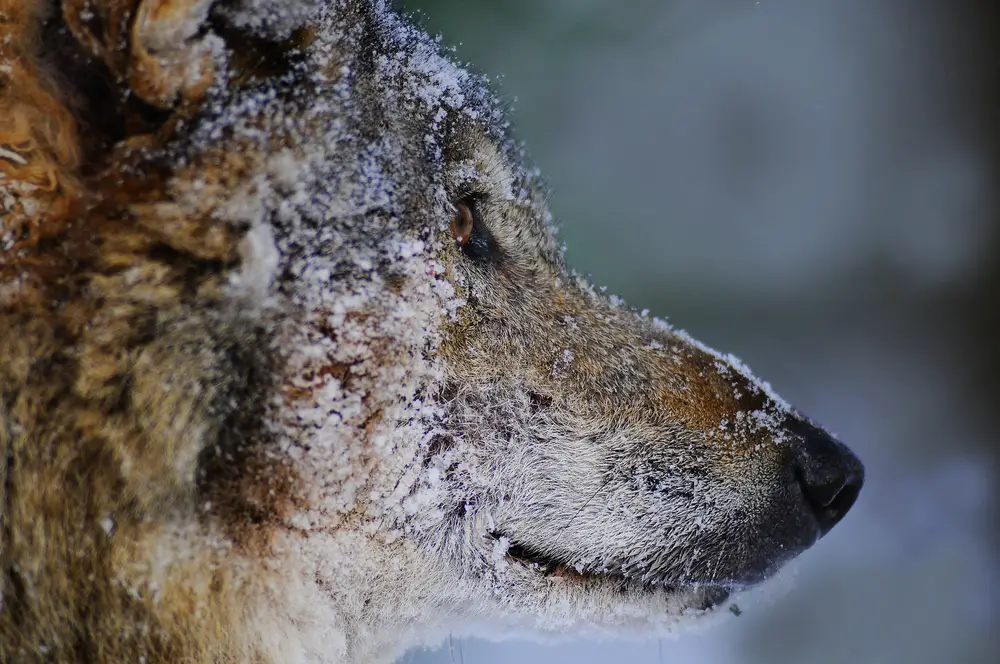There are no wild wolves in England at this point in time, although they are alive in Britain. Wolves like to remain in woodland and shrubland, where they can stalk their prey.
This is the most common deer in Europe, but they can feast on many wildlife animals that happen to stumble into the wrong woodlands.
Wolves were the last of Britain’s top predators that were hunted to extinction. They became extinct in England somewhere in the 18th century.
Many people hunted wolves and persecuted them across Europe, making them extinct in more than just Britain.
However, you can still find wolves in places such as Italy, Bulgaria, and Poland. Poland banned wolf hunting in the 1990s, and since then the species has been recovering from this and spreading west.
Wolves are now established in Germany and have even been spotted in Denmark and the Netherlands.
Let’s take a look at the history of wolves in England and why they went extinct in the first place.
History of wolves in England
Nowadays, we have become accustomed to living with species that do not instill fear or pose a threat to human life. In the past, when species did pose a threat to humans, they were quickly eradicated through hunting instead of learning how to coexist together.
The sad reality is that mass huntings were used to make any species that scared humans extinct, including the wolf. Historically, wolves were thought to have arrived in England at the end of the last ice age, which was approximately 10,000 to 12,000 years ago.
Wolf packs crossed the land bridge from Europe to England after their prey did the same. Deer, elk, and other animals crossed this bridge, which is why the wolves followed in hopes to hunt them.

Wolves quickly became a top predator in the ecosystem, and there were a lot of wolves in England at the start of the medieval period. The Helsfell Wolf’s skeleton was excavated near Kendal and was dated back to the 12th century!
However, all good things must come to an end and in 1000 A.D, the wolf population in England began to decline, leading to extinction due to mass hunting sessions. Their extinction could also be partly down to deforestation and therefore lack of their habitat.
Norman kings in 1066 to 1152 A.D. actually employed their servants to be wolf hunters. These kings would also organize hunting parties to eradicate wolves. In 1281 Edward I ordered all wolves in England to be killed.
This campaign from Edward I, as well as other kings that came after him, led to the demise of the wolf population in England. By the end of the medieval period, wolves were all but extinct in England and it is widely believed that wolves went extinct somewhere between the 15th and 18th centuries.
An exact date cannot be found; however, as a few wolves slipped through the cracks and managed to stay alive longer than others. Reports showed that wolves remained alive in Scotland for much longer than they did in England, with the last being killed in Scotland by Sir Ewan Cameron in 1680.
However, there are other encounters that would disprove this and show that wolves didn’t become extinct in Scotland until the 18th century.
Can wolves live in England now?
So, can wolves actually live in England if wildlife teams were to bring them over to the island? To put it simply, yes, wolves would be able to live in England. There is more than enough habitat and wild prey for wolves to exist and become established in England, Wales, and Scotland.
However, introducing wolves back into England would need enough public support and to be considered carefully. There have been many European countries that have successfully welcomed wolves back into the wild through wolf education programs.
As wolves became extinct in England before any rules could be implemented, there would have to be new laws set in place to prevent the new wolves from being hunted into extinction again. We should not introduce wolves back into England just to be hunted again.
It would be difficult to introduce wolves back into England without the consent of the majority of the population. The reason why wolves were killed in the first place was that it was believed that they would kill our livestock and even our own people.
However, other countries have disproved this and shown that we can coexist with wild wolves.
Summary
Wolves became extinct in England somewhere between the 15th and 18th centuries. However, they do still exist in European countries such as Bulgaria and Poland. While wolves could be reintroduced to England today, there is a question of whether they should or not. There would need to be a ban on hunting wolves implemented before we could start the process.

